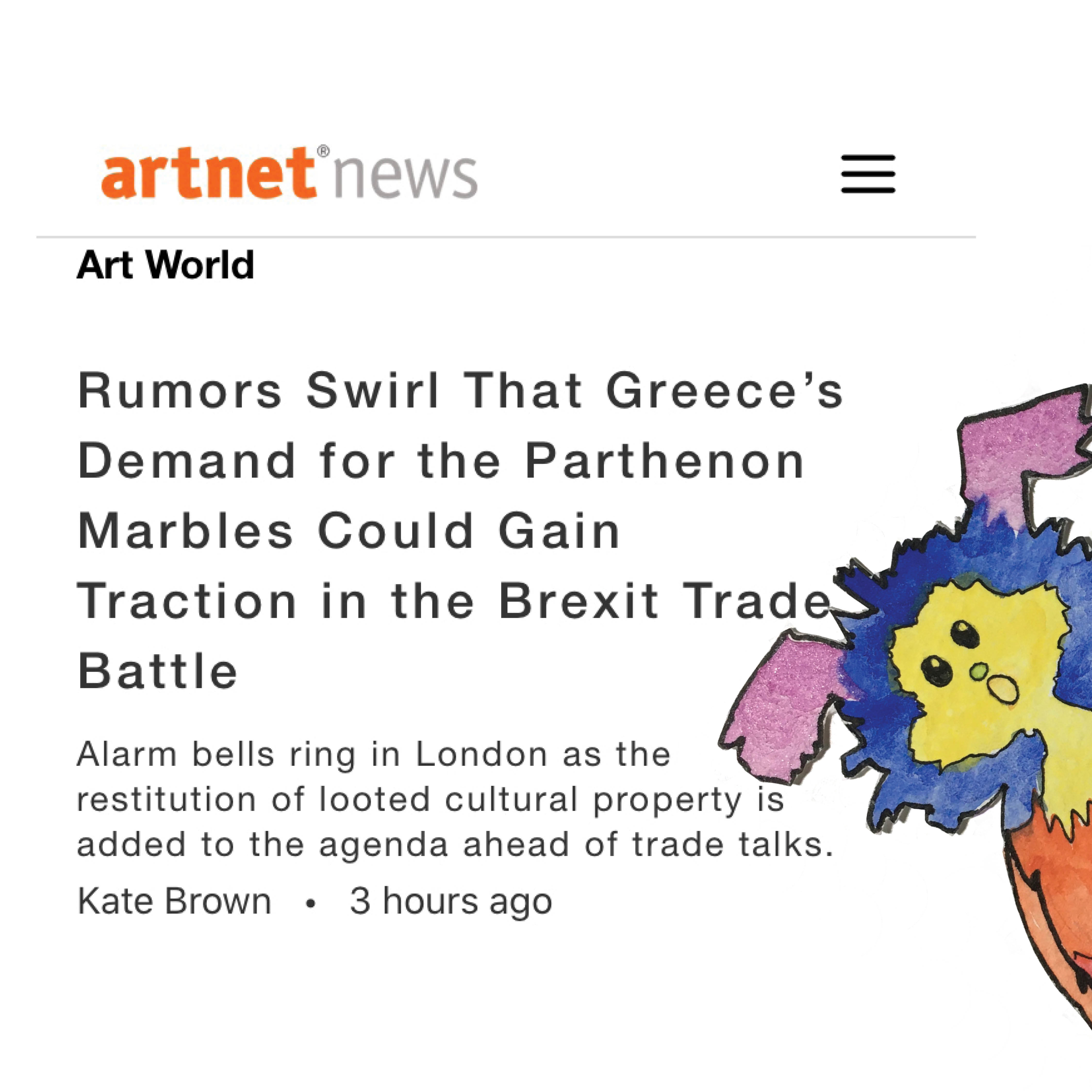A draft mandate for European Union negotiations with the United Kingdom over Brexit was leaked to the media creating a swarm of speculation that Brexit negotiations may serve as an opportunity for Greece to regain the Parthenon marbles that were stolen (global popular opinion) / legally obtained (British Museum Trustees and legal department opinion) by Lord Elgin, British Ambassador to the Ottoman Empire, in the early 1800s.
The buzz was sparked by a line that said the British government will have to “address issues relating to the return or restitution of unlawfully removed cultural objects to their countries of origin.” Many have interpreted this as a direct reference to the Parthenon Marbles.
The Arts Newspaper quoted Greece’s Cultural Minister, Lina Mendoni who said that in the early 1800s, Elgin and the UK “deployed illegal and untoward measures to extract from Greece the sculptures of the Parthenon and a plethora of other antiquities in a blatant act of serial theft.” Mendoni sees EU trade talks with the UK as an opportunity for Greece to regain the stolen marbles. Bloomberg reports, “A Greek official denied that the clause related to the statues, saying they remain a bilateral issue between the two countries. The official said it was a reference to stolen pieces including a number of 18th and 19th century paintings that often turn up at auction houses in London.”
Marabou sees the use of explicit language discussing “the return or restitution of unlawfully removed cultural objects” as exciting, but it’s also within a European context. It makes Marabou think about The Metropolitan Museum of Art’s Provenance Research Project that focuses on the provenance of objects within its collection, but really grows out of Nazi-era stealing. The website states,
“In recognition of the systematic, widespread looting of the Nazi regime, the provenance of works that changed hands—or possibly changed hands—in German-occupied Europe during the Nazi era is a particular focus of inquiry. In 2000, the Museum began the Provenance Research Project, the purpose of which is to determine whether any works of art in the Museum’s collection could have been unlawfully appropriated in the Nazi era and not subsequently restituted to their rightful owners.”
Marabou has observed that the return and efforts for proper provenance of European objects and art can be privileged over that of other cultures whose objects were also stolen, and sold or “gifted” under duress. There’s also a little bit of a pot-calling-the-kettle-black situation here. However, international talk of repatriation and how objects are obtained is important. Although the EU calling out the UK on its unlawful accumulation of cultural heritage from around the world is hypocritical for some EU members, the return of the Parthenon Marbles to Greece could be the catalyst to holding British museums and collectors accountable to the communities from whom their holdings were stolen.

